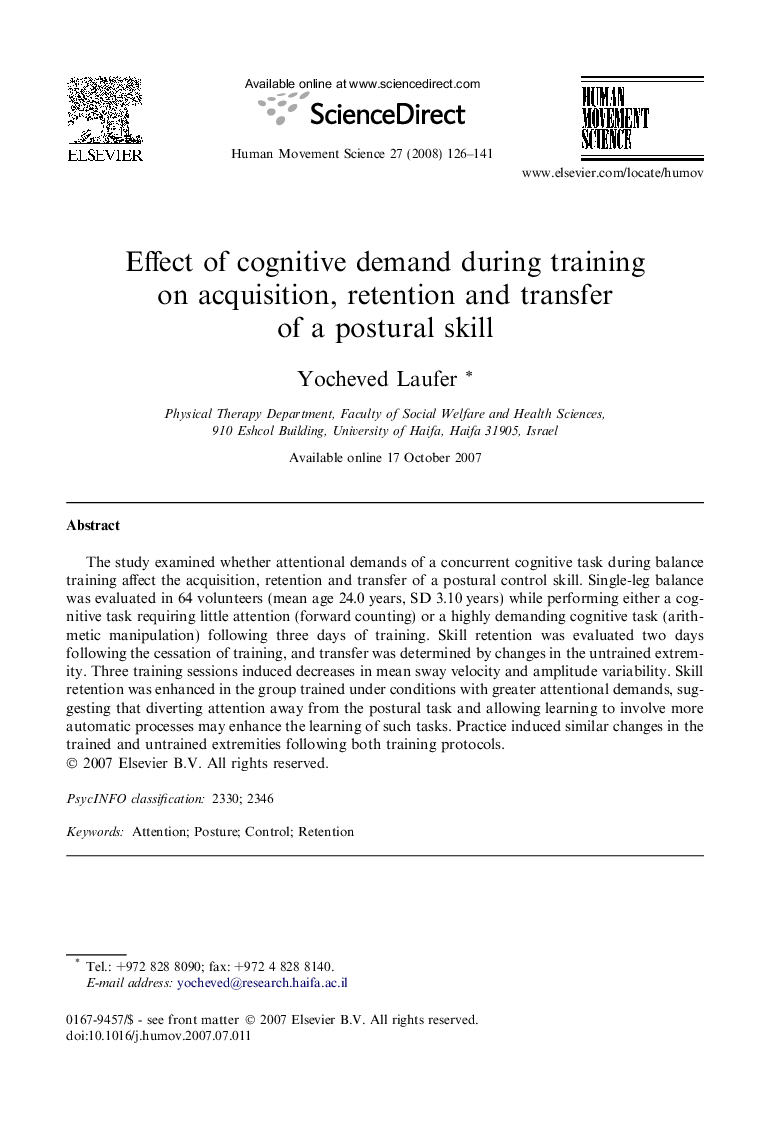| Article ID | Journal | Published Year | Pages | File Type |
|---|---|---|---|---|
| 928626 | Human Movement Science | 2008 | 16 Pages |
The study examined whether attentional demands of a concurrent cognitive task during balance training affect the acquisition, retention and transfer of a postural control skill. Single-leg balance was evaluated in 64 volunteers (mean age 24.0 years, SD 3.10 years) while performing either a cognitive task requiring little attention (forward counting) or a highly demanding cognitive task (arithmetic manipulation) following three days of training. Skill retention was evaluated two days following the cessation of training, and transfer was determined by changes in the untrained extremity. Three training sessions induced decreases in mean sway velocity and amplitude variability. Skill retention was enhanced in the group trained under conditions with greater attentional demands, suggesting that diverting attention away from the postural task and allowing learning to involve more automatic processes may enhance the learning of such tasks. Practice induced similar changes in the trained and untrained extremities following both training protocols.
